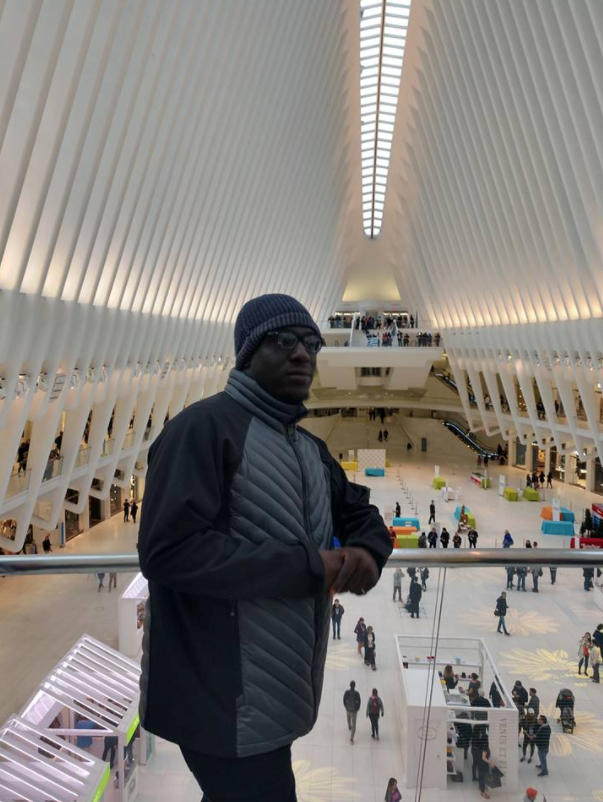As the Ebola virus swept through his homeland between 2014 and 2015, a Liberian man says that it revealed key weaknesses in his nation's healthcare system.
It's one of the main reasons why Gboko Stewart resumed his years-long effort to enter Canada and attend Quest University, despite previous rejection. He says he wants to study public health.
"I would hope to work in policy," said Stewart. "I've seen how much we've had a complete breakdown. When Ebola came to Liberia it really exposed the nothingness of our health system."
But those dreams have once again been put on hold indefinitely.
On Sept. 11, Stewart’s latest application to Immigration, Refugees and Citizenship Canada, or IRCC, was denied.
The grounds for rejection given by the agency have much in common with the reasons it gave Stewart last time he was denied in 2015.
A letter given to Stewart, which he forwarded to The Chief, says that the IRCC is not satisfied Stewart will leave Canada at the end of his stay, based on his family ties and the purpose of his visit.
It also raised concerns about his employment situation and his personal and financial assets.
The IRCC did not immediately respond to requests for comment regarding this decision.
Stewart disagrees with the agency’s findings, but says he will be returning back to Liberia. He was in the United States visiting family while his application was being processed.
“At a time when others are sneaking through porous borders crossing to make it over to Canada, I chose not to,” he said. “I chose the legal means on valid grounds.”
He said he is disappointed, considering that in Liberia, Canada is portrayed as the open and welcoming alternative to America.
Once again, it appears as if history is repeating itself.
Stewart, who has worked as a radio host and a writer in Liberia, was accepted into Quest and given a substantial scholarship around the same time the Ebola outbreak swept through West Africa in 2014.
Canada imposed a visa-freeze on all countries affected by the disease, delaying Stewart's application. It was an event chronicled in numerous regional media outlets in B.C. and in Liberian publications.
But when the freeze was lifted, Immigration, Refugees and Citizenship Canada, or IRCC, denied Stewart entry in 2015.
Officials said that there was a risk that he would not return to his home country.
"The IRCC officer reviewing his file determined that Mr. Stewart's program of study in Canada did not appear to be consistent with his previous education and employment history," wrote IRCC spokesperson Shannon Kerr in an emailed statement, regarding the 2015 application.
"The officer also determined that Mr. Stewart had limited economic and social ties to his home country, as well as limited travels which could demonstrate a history of having travelled and returned. Based on the information provided, the officer was not satisfied that Mr. Stewart was a genuine student with sufficient ties to compel his departure at the end of an authorized stay."
The IRCC requires that applicants who want to enter Canada be in good health, have enough money, a clean criminal record and either family or assets to show they will return to their home country.
Stewart insists, however, that he's not at risk of staying.
"I just want people to understand, I'm not trying to immigrate to Canada or anything. I just want an education," he said.
"Canada — they have the resources and expertise to help me so that I can help my country."
He added that his return is especially important to him because he said his country has been hit hard by a brain drain — the tendency of the well-educated to immigrate elsewhere.
Stewart said the IRCC was also worried that if Quest, for whatever reason, decided to back out of giving him a scholarship, he wouldn’t have the finances to support himself.
An official from Quest University said they will honour the original promise David Helfand, a founding member of the school, made in 2014 to provide Stewart with substantial financial aid.
Trevor Mannion, director of admissions, would not disclose the value of the scholarship package, but said that it was identical to the one promised by Helfand and "significant."
It would not, however, completely cover all costs, Mannion said.
He added that Quest has reached out to Sea to Sky MP Pamela Goldsmith-Jones to see if she can help with Stewart's situation.
Goldsmith-Jones told The Chief that she was aware of the situation, but declined to comment further.
Some people have created a GoFundMe for the aspiring Quest student.
The fundraisers hope that if Stewart has enough money, the IRCC will be convinced that he won't become a drain on social services.
Stewart hopes that one day, he will be able to realize his dream of attaining a Canadian education.
Until then, Stewart is left with a question on his mind.
"Where is the openness of Canada that Prime Minister Trudeau talks about?" he said.
***Updated Sept. 11, 1:48 p.m. PDT




